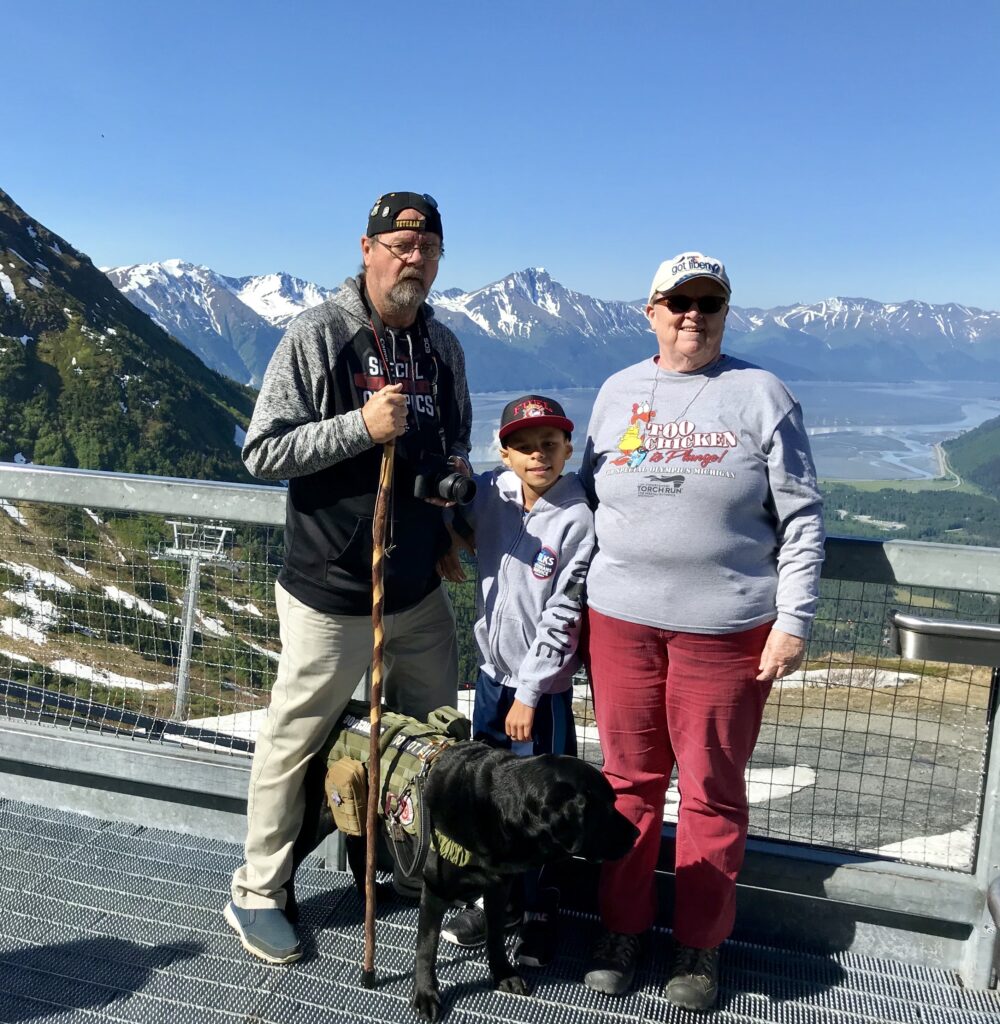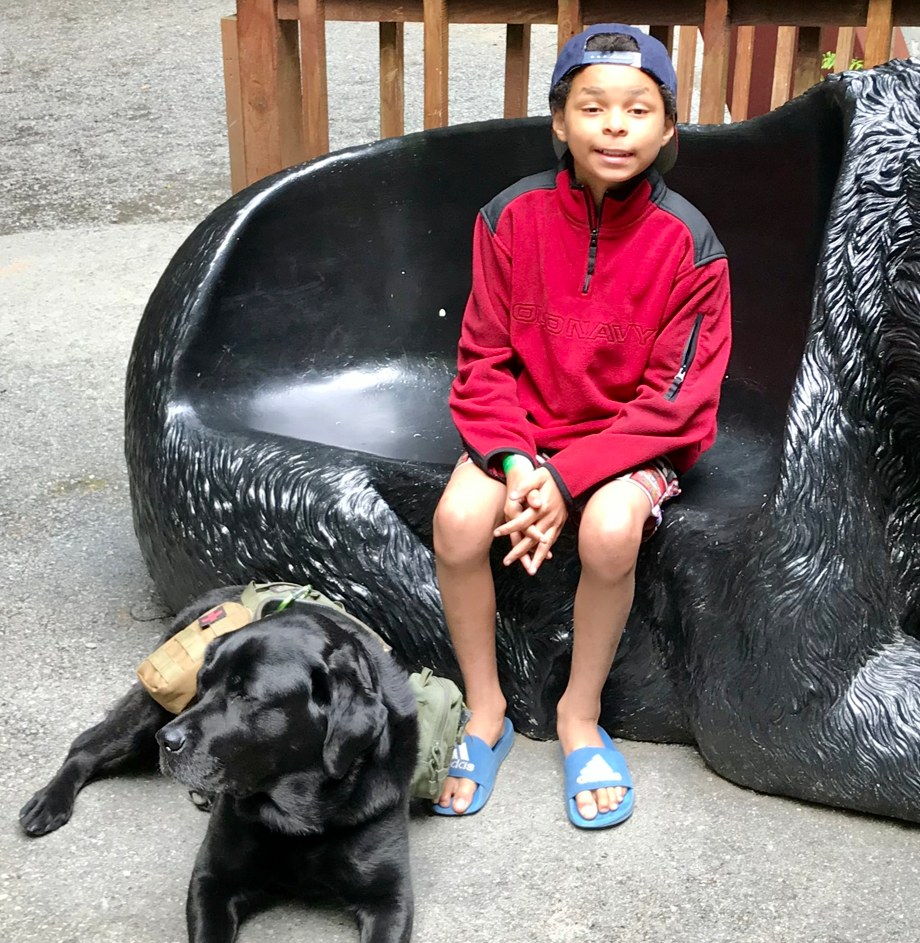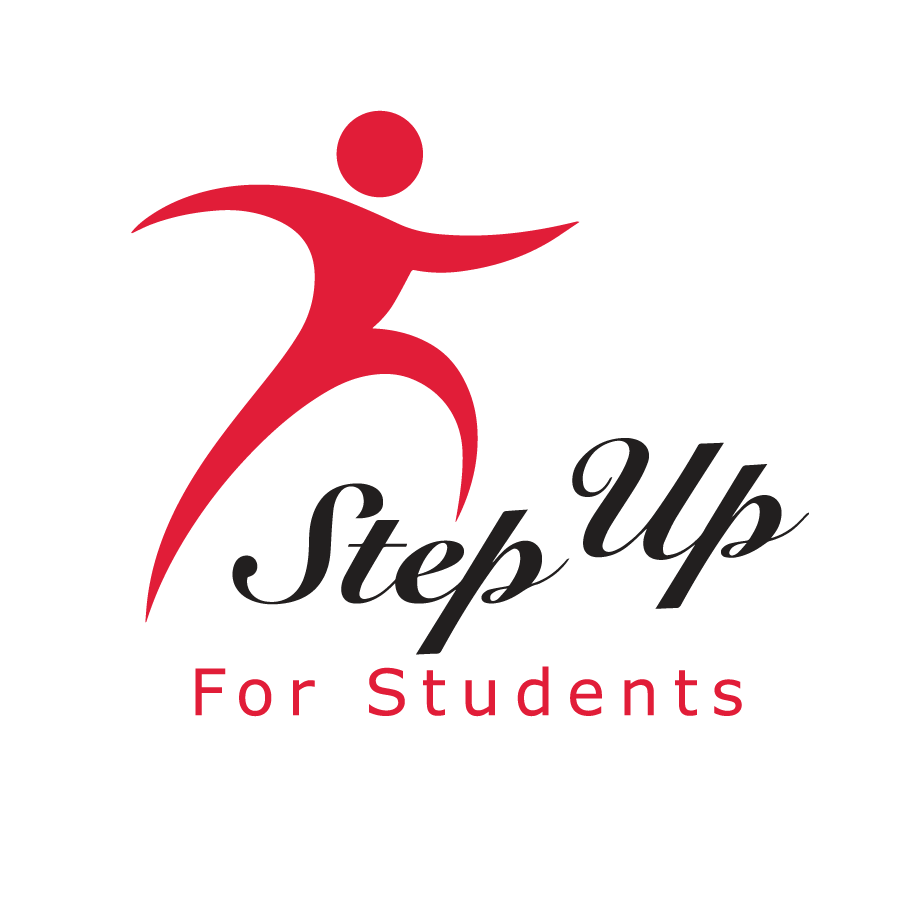From a chaos to calm: How an education choice scholarship is changing David's life
BY ROGER MOONEY
PINELLAS PARK – David Facey remembers sitting in his Language Arts class last year hoping for salvation. Hoping someone would pull the fire alarm. Drastic, yes, but anything to bring class to an end.

The other students were nearly finished with their writing assignment. David had written only three words.
His teacher noticed. She wasn’t happy.
“David, what’s wrong with you?” she asked. “You need to concentrate.”
David wanted to scream.
It’s not a lack of focus. It’s dysgraphia, a neurological disorder that affects his ability to write. David can’t write within the lines. He can’t properly space letters. It took him nearly the entire class to write those three words. His hand cramped. He had a headache. He could no longer remember what he was writing about.

The topic was the ocean. David can talk for hours about the ocean. He just can’t write about it. That led to a confrontation with the teacher, a trip to the principal’s office, and a phone call to David’s mom.
David’s biological mother used drugs throughout the pregnancy, said Betty Facey, who along with her husband, Arlen, adopted David when he was 3. David was born addicted to those drugs. As a result, he has dysgraphia and dyscalculia, another neurological disorders where he struggles with numbers and math. He has atypical cerebral palsy, which affects his core strength and fine motor skills. He struggles with anger management.
“His are more hidden disabilities,” Betty said.
David, 14, didn’t have a problem in school until the Faceys moved from Michigan to Pinellas Park in 2021. Betty learned the teachers at his assigned school were not following his individual education plan. He couldn’t understand assignments. He couldn’t complete them. He couldn’t keep up with his classmates.
And when confronted by his teachers, he couldn’t control his anger.
“I would act all crazy and stuff,” David said.
With the help of an education choice scholarship, Betty enrolled David at Learning Independence For Tomorrow (LiFT) Academy in Seminole. LiFT is a private K-12 school that serves neurodiverse students.
“I would say if Florida didn’t have this (education choice) option, he would be stuck in (his assigned school) school,” Betty said. “He’d have to put up with the stuff they were dishing out. … He would hate school. He would probably not have a chance to graduate.
“To me, to be able to get him in a place like LiFT, which really is the perfect place for him, is sort of like a miracle.”
Betty is so grateful she wrote a letter to Gov. Ron DeSantis, thanking him for the K-12 scholarship programs for Florida schoolchildren, which are managed by Step Up For Students.

David, who receives the Family Empowerment Scholarship for Students with Unique Abilities, began attending LiFT during the 2022-23 school year as an eighth-grader.
“I think it is better than (my other school), because the teachers there, they actually pay attention,” David said. I’m not in as big of a class, so I’m not afraid to ask for help because the class is smaller.
“I feel like I can actually focus on the work and do the work.”
Betty said she never realized how much anxiety David felt attending his previous school. His inability to keep up with the work, his confrontation with teachers and administrators, and run-ins with bullies took a daily toll.
“Every single day I got calls that David was in the office and they wanted me to go in and take him home,” Betty said.
Betty said she felt a “calmness” throughout the campus when she first visited LiFT. And when she explained David’s medical and behavioral history to the LiFT administration, Betty said, “It didn’t faze them.”
LiFT works with students who have learning differences. Some are academically, emotionally, or behaviorally challenged. All are held to the same academic standards, said Vice Principal Darrin Karuzas.
Each student has a LiFT Support Plan (LSP), which is an individual education plan that is customized to fit their needs. LSP’s are tailored with input from parents, teachers, and school counselors who then work together to serve as the student’s support team.
David was a little leery when he first arrived on campus – understandable after what he encountered at his previous school.
“He’s bought in,” Karuzas said, “and he’s felt the trust and the love and opportunity to grow.”
Karuzas has watched David gain self-confidence. David is eager to answer when called on, and even asks questions during class. Karuzas said that comes from the respect and reinforcement David receives from his teachers.
It also comes from the support David receives at home.
“Betty has been incredible,” Karuzas said. “She is consistent. She is supportive. She has been very communicative with the school and is always there. The role she’s in, she has been exceptional. It’s not easy with what they’ve been through.”

Betty, a retired psychiatric nurse for the Department of Veterans Affairs, and Arlen, a retired pediatric nurse, were foster parents specializing in medically fragile children. They met David when he was an infant hooked up to lifesaving machines in the neonatal intensive care unit, where he spent the first 75 days of his life.
“There was more machine than there was baby,” Betty said. “I took one look and said, ‘This is not for me.’”
Then a nurse unhooked David from the machines and placed him in Betty’s arms.
“I remember holding David and saying, ‘I am not going to fall in love with you,’” Betty said. “He looked me right in the face, and he winked at me. He had this big grin on his face, and I was like, ‘Darn you.’”
The adoption was finalized when David was 3. It was a rough beginning for the new family.
David had a tracheal tube and feeding tube inserted when he was 1. They were removed when he was 10. He was on oxygen 24 hours a day until he was 3. His service dog, Venture, carried two oxygen tanks in a saddle-like bag and was tethered to David’s trachea by a three-foot tube everywhere David went, including pre-school.
David was able to play ice hockey when he lived in Michigan. He was also a member of his middle school wrestling team. He currently plays football.
“David is a huge blessing for me,” Betty said.
She and Arlen had a son, Brian. He was “Big Bro.” David was “Little Bro.”
In August 2021, Brian was struck by a car while riding his motorcycle to work and died. He was 43.
“I don’t think I would have survived the death of my big son if I didn’t have David, because I had to get up in the morning. I had to make sure he had breakfast and was dressed to go to school,” Betty said. “So, he was like a saving grace for me.”
The move to LiFT has done wonders for David. Betty always knew there was a smart student buried under all that anxiety and now that the tension of going to school is gone, it’s beginning to show. His grades have improved. Betty feels LiFT will prepare David for adulthood.
Doctors told Betty and Arlen that David would never walk or talk. The doctors never expected David to live to his first birthday.
“He’s exceeded quite a bit,” Betty said. “His life got off to a rough start. But now he’s really good.”
Roger Mooney, manager, communications, can be reached at [email protected].

